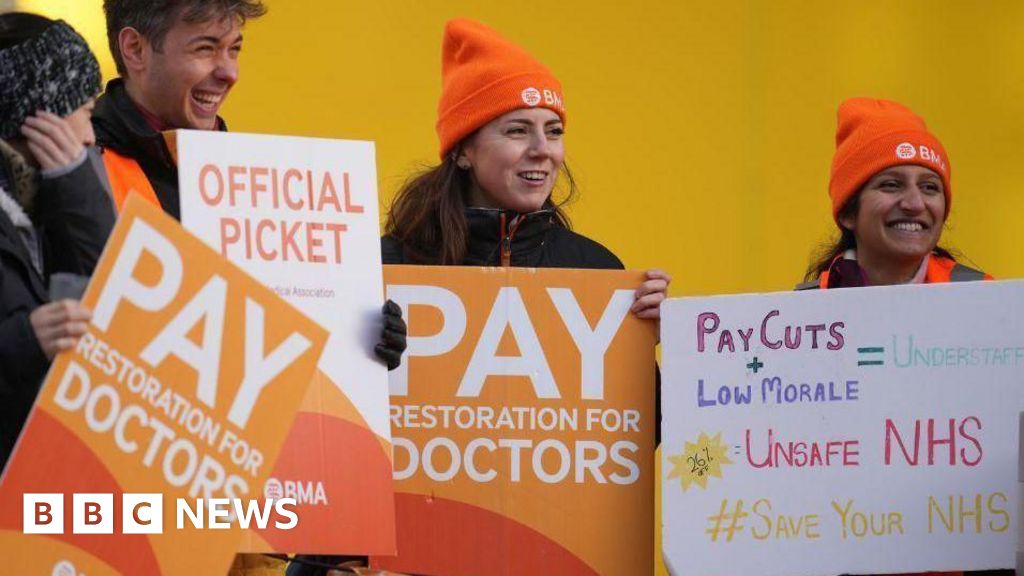Junior doctors in England have accepted the government’s offer of a 22% pay rise over two years, ending their long-running dispute.
Members of the British Medical Association backed the deal with 66% voting in favour. Nearly 46,000 took part in the online ballot.
It brings to an end the 18-month dispute, which saw junior doctors take part in 11 separate strikes.
But the BMA warned it expected more above-inflation pay rises in future years or there would be “consequences”.
The offer was made by Health Secretary Wes Streeting in late July – just weeks after Labour won the election.
It includes a 4% backdated pay rise for 2023-24, on top of the existing increase worth an average of 9% for the last financial year.
A further pay rise worth about 8% is being offered for 2024-25, as recommended by an independent pay review body.
That brings the total over the two years to roughly 22%, on average, for each junior doctor, with the lowest paid set to receive the largest increases.
The British Medical Association had been campaigning for a 35% pay increase to make up for what it says is years of below-inflation pay rises.
Industrial action in the NHS is estimated to have cost taxpayers around £1.7 billion during 2023 and 2024.
Dr Robert Laurenson and Dr Vivek Trivedi, co-chairs of the British Medical Association, said it should never have taken “so long” to get to this point.
They described it as a “modest” above-inflation award – and still left pay below what it had been in 2008.
They said they in future years the expectation was that pay would continue going up above inflation – and if that did not happen the government needed to be “prepared for consequences”.
“There is still a long way to go,” they added.
“We thank all doctors who have seen us through to this point by standing on picket lines and fighting for their worth.
“The campaign is not over, but we, and they, can be proud of how far we have come.”
Junior doctors in Wales recently voted in favour of an improved pay deal, while in Northern Ireland talks are ongoing and no strike action is currently planned.
Junior doctors did not take industrial action in Scotland after they accepted a pay offer from the devolved government last year.
The announcement comes ahead of the title of junior doctor being dropped in favour of the term resident doctors from Wednesday.
Streeting agreed to the change during the talks.
The term junior doctor has long been disliked by the BMA, which believes it did not reflect the experience and standing of junior doctors – some of whom can have eight or more years experience.
